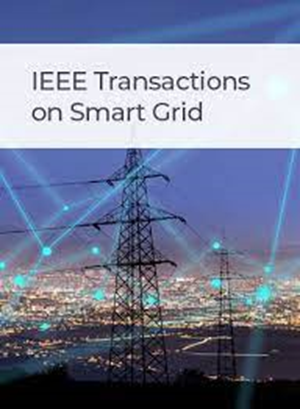智能电表数据应用的统一模型
IF 9.8
1区 工程技术
Q1 ENGINEERING, ELECTRICAL & ELECTRONIC
引用次数: 0
摘要
充分利用智能电表数据,有利于从需求端提高电力系统的能效,尤其是在人工智能技术蓬勃发展的今天。然而,现有的大多数基于人工智能的方法都是基于各自的任务进行独特的设计,因此彼此之间存在高度的不兼容性。低兼容性将导致相似任务之间的重复建模和飞涨的实现成本,不适合多样化和不断变化的需求侧任务。尽管大型语言模型为构建通用模型提供了一种很有前途的方法,但它们要么需要大量的资源用于预训练,要么需要逐个设计以进行微调。因此,实际上很少有任务通用模型可用于电力系统。在本文中,我们提出了一种新的智能电表数据应用的统一模型。具体而言,我们首先提出了一个具有混合专家层的统一模型,以经济有效的方式确保足够的模型容量,使从头开始的训练变得负担得起。然后,我们设计了一种基于信息瓶颈的训练方案,以促进统一模型有效地学习通用知识。此外,我们开发了一个基于预训练范式的通用框架,以制定统一的目标函数,并为不同的任务提供一致的工作流程。最后,在公共数据集上验证了所提出方法的有效性和优越性,所提出的统一模型可用于负荷预测、数据输入和异常检测,并实现了与当前最先进的特定任务方法相当的性能。本文章由计算机程序翻译,如有差异,请以英文原文为准。
A Unified Model for Smart Meter Data Applications
Making adequate utilization of smart meter data is conducive to improving the energy efficiency of the power system from demand side, especially with booming artificial intelligence (AI) technology. However, most existing AI-based methods are highly incompatible to each other due to unique designs based on their respective tasks. Low compatibility will lead to duplicate modeling among similar tasks and skyrocketing implementation costs, which is not suitable for diverse and changing demand-side tasks. Although large language models provide a promising way to build the general-purpose models, they either need substantial resources for pre-training or case-by-case design for fine-tuning. Hence, there are practically rare task-generic models available for power systems. In this paper, we propose a novel unified model for smart meter data applications. Specifically, we first propose a unified model with mixture-of-expert layers to ensure sufficient model capacity in a cost-effective manner, which makes the training from scratch affordable. Then, we design an information bottleneck-based training scheme to facilitate the unified model to efficiently learn the generic knowledge. Moreover, we develop a general framework based on pre-training paradigm to formulate a uniform objective function and provide a consistent workflow for different tasks. Finally, the effectiveness and superiority of our proposed method are validated on public datasets, where the proposed unified model can be applied to load forecasting, data imputation as well as anomaly detection, and realizes comparable performance to state-of-the-art task-specific methods.
求助全文
通过发布文献求助,成功后即可免费获取论文全文。
去求助
来源期刊

IEEE Transactions on Smart Grid
ENGINEERING, ELECTRICAL & ELECTRONIC-
CiteScore
22.10
自引率
9.40%
发文量
526
审稿时长
6 months
期刊介绍:
The IEEE Transactions on Smart Grid is a multidisciplinary journal that focuses on research and development in the field of smart grid technology. It covers various aspects of the smart grid, including energy networks, prosumers (consumers who also produce energy), electric transportation, distributed energy resources, and communications. The journal also addresses the integration of microgrids and active distribution networks with transmission systems. It publishes original research on smart grid theories and principles, including technologies and systems for demand response, Advance Metering Infrastructure, cyber-physical systems, multi-energy systems, transactive energy, data analytics, and electric vehicle integration. Additionally, the journal considers surveys of existing work on the smart grid that propose new perspectives on the history and future of intelligent and active grids.
 求助内容:
求助内容: 应助结果提醒方式:
应助结果提醒方式:


